Poetry Shines, Art Work is of Good Quality, and a Rare Letter Appears
More Than One Items Shares a Link to Canadians in Combined Ops
There are no small roles in any of the Canadian Armed Forces
Photo Credit - Lt. G. Moses, RCNVR. RCN Photo
Introduction:
Valentines Day is over but love still hangs in the air, at least according to a few items in the following news clips from "The Crow's Nest." As well, a Navy diver still hangs in the water "with a temperature of 27 degrees" (Fahrenheit), waiting for the word to grab the ladder, get out, and then grab a very hot cup of coffee. More details about both topics - one hot, one cold - to follow.
The selected entries below - most related to creative arts, i.e., drawings, cartoons, music, poetry, etc. -are from the March and April 1944 issues of one of several Canadian Navy newspapers, magazines, etc. "The Crow's Nest" and others can be found at the CFB Esquimalt Naval Military Museum, under the heading "Publications".
"Happy hunting," I say.
Below is the first of a few cartoons by "W. McC" that dot the upcoming entries from two issues. Is "W. McC" the pen name of Cmdr. G. McClintock, President of "The Crow's Nest" operation? We may never know:
The poem below concluded a letter that appeared in 'Across Our Bows' (i.e., Letters to the Editor section). Though the initial content of the letter (not included here) pointedly struck a nerve with newspaper staff and readers, the poem appeared in full:
Editor's Note: The author of the above letter signed off as 'Hostility Bloke', a fitting handle for someone in RCNVR. Members of the volunteer reserve signed up for 'Hostilities Only' (HO) and would be freely discharged after the war (aka 'hostilities') was over. The next three photographs (my own) provide a bit more information re HO:
WWII veteran P. Neuman signed up for the 'Duration' of the war, as recorded
in section called "Particulars of Service" above, Column 3
Two excellent books by the British writer Brian Lavery, the first about types of
Landing Craft, the second about some of the men who manned them.
My father's WWII records reveal, under 'Particulars of Service', that the "Period
(he) Volunteered for" was known as 'Hostilities'. And he was a good bloke too.
Moving right along... Complaints about "the mess" appear on a somewhat regular basis. Perhaps the canteen was quite popular as the result of too much "sorry stuff" and "soup slop", etc. dished out:
The inclusion of 'Wrens' in the armed forces may have been but one of many reasons why romance often hung thickly in the air:
Now onto more serious matters:
Much has been shared previously on this website/blog about the above photo because AB Lloyd Evans met a few years ago - a very significant friendship developed - and more recently I also connected with a surviving family member of Stoker (M) Thomas Fawdry (centre). The above photo is a central part of a research project I am now involved in, and it is proving both lengthy and rewarding. Click here for
more information re Editor's Research.
What a waste of good butter!!
Coincidentally, LS John Crabb hailed from Lansing (now absorbed by Toronto,
north of 401), and LS Lloyd Evans (mentioned earlier) retired not far east of
Lansing, i.e., in Markham, also north of 401.
In another entry on this website/blog, I added a few details about the HMS Jervis Bay because my father mentioned it in a story concerning his crossing of the Atlantic on his way to the UK, just a week or so before he and mates in the Effingham Division (out of HMCS Stadacona, end of Dec. 1941) were introduced to landing crafts for the first time, as new members of Combined Operations. The following poem would connect with how he felt about the ship himself:
 |
I tip my hat to Mrs. WR McLean, 705 Garnet St., Regina, Saskatchewan, for keeping her issues of "The Crow's Nest" in such very good condition! |
Gib Potter, in the photo above, may have been able to lasso WREN Bette Fulton, but according to his cartoon below, he was unable to snag anything from the canteen one day... and it stayed on his mind.
Unfortunately, there were no photographs attached to the above account re HMCS Shawinigan, so I share the photo below and caption, as found on page 59 of No Price Too High by Terry Copp (with Richard Nielsen).
Photo Credit - From the collection of Ken MacPherson
The following photo appeared on Page 5 of the March 1944 issue of "The Crow's Nest" but I share it here because it appears that "The North Atlantic's Mad'.

The next letter to the Editor caught my eye because many Canadians in Combined Ops had served in the Mediterranean theatre of war aboard various kinds of landing crafts* - during the invasions of N. Africa (Nov. 1942) and Sicily and Italy (July and Sept. 1943). Some, including my father, were continuing their WWII service at Canada's only Combined Operations School or training camp on Vancouver Island when this letter was published. Others, apparently, were still in 'The Med', serving on LCI(L)s.
*various (common) kinds of landing craft, from small - large: LCAs - landing craft, assault; LCMs - landing craft, mechanised; LCI(L)s - landing craft, infantry (large).
The author is Canadian, still in the Med, part of a mixed crew, and has given those - like myself - enough clues to prompt much curiosity about another avenue of study related to the roles of Canadians in Combined Operations.
Much has been written about the sinking of the St. Croix and the unusual path of one of the survivors* (not only of the St. Croix but of the ship, i.e., Icarus, that rescued him) on this online site.
* for a time he ended up at the same Combined Ops camp on Vancouver Island as my father! Readers can email me at gordh7700@gmail.com for more details or links to appropriate posts.
That being said, the following poem is a rarity in my opinion, i.e., from a mother's point-of-view. With just a few words a very large story is told:
When my father (and mates) landed safely at the Combined Ops School (HMCS Givenchy III) he thought, "It was heaven." The view of the mountains from "Barracks Beach" was enough to calm the heart of any sailor:
Barracks Beach. Photo - From Sailors Remember by William H. Pugsley
"It was absolute heaven there." D. Harrison (RCNVR, Comb. Ops, 1941 - 45)
More from "The Crow's Nest" will follow.
Please link to The Arts Of War: From "The Crow's Nest" (6)
Unattributed Photos GH






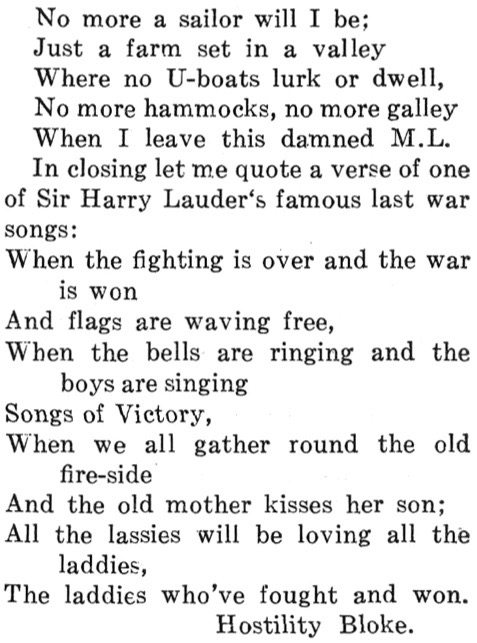



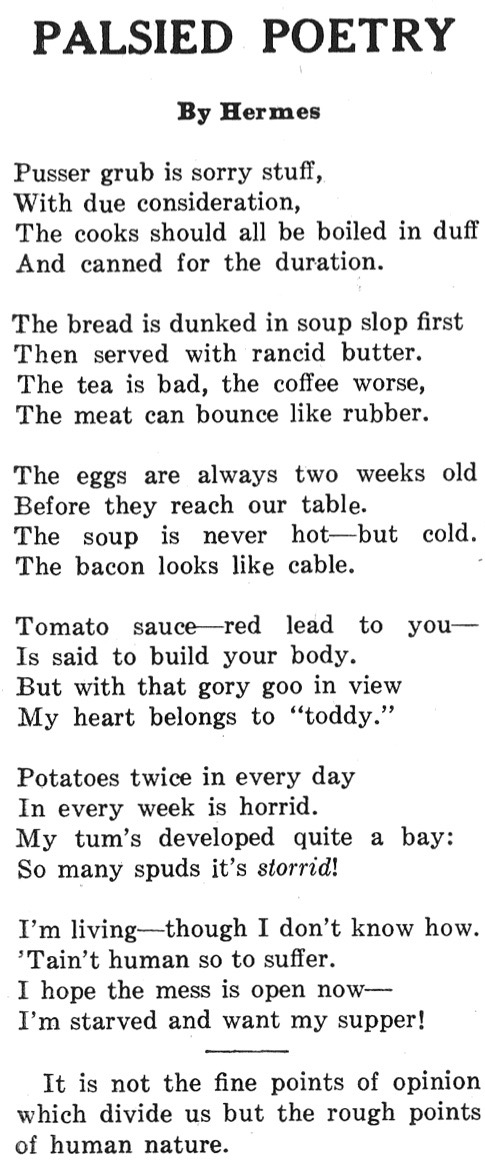
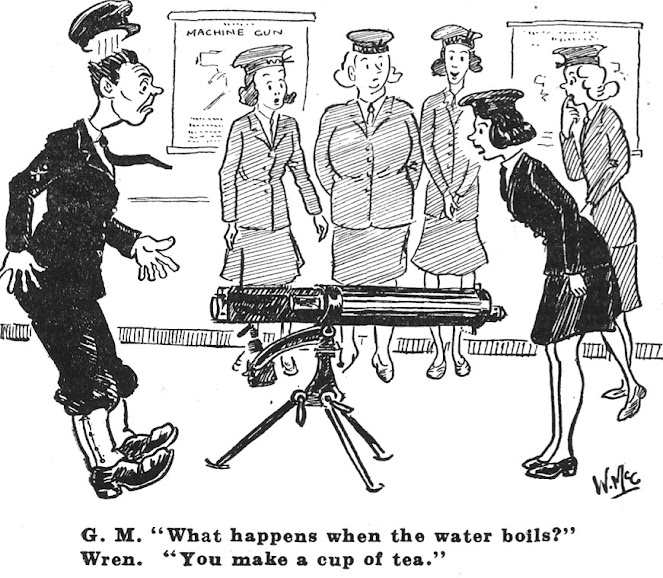












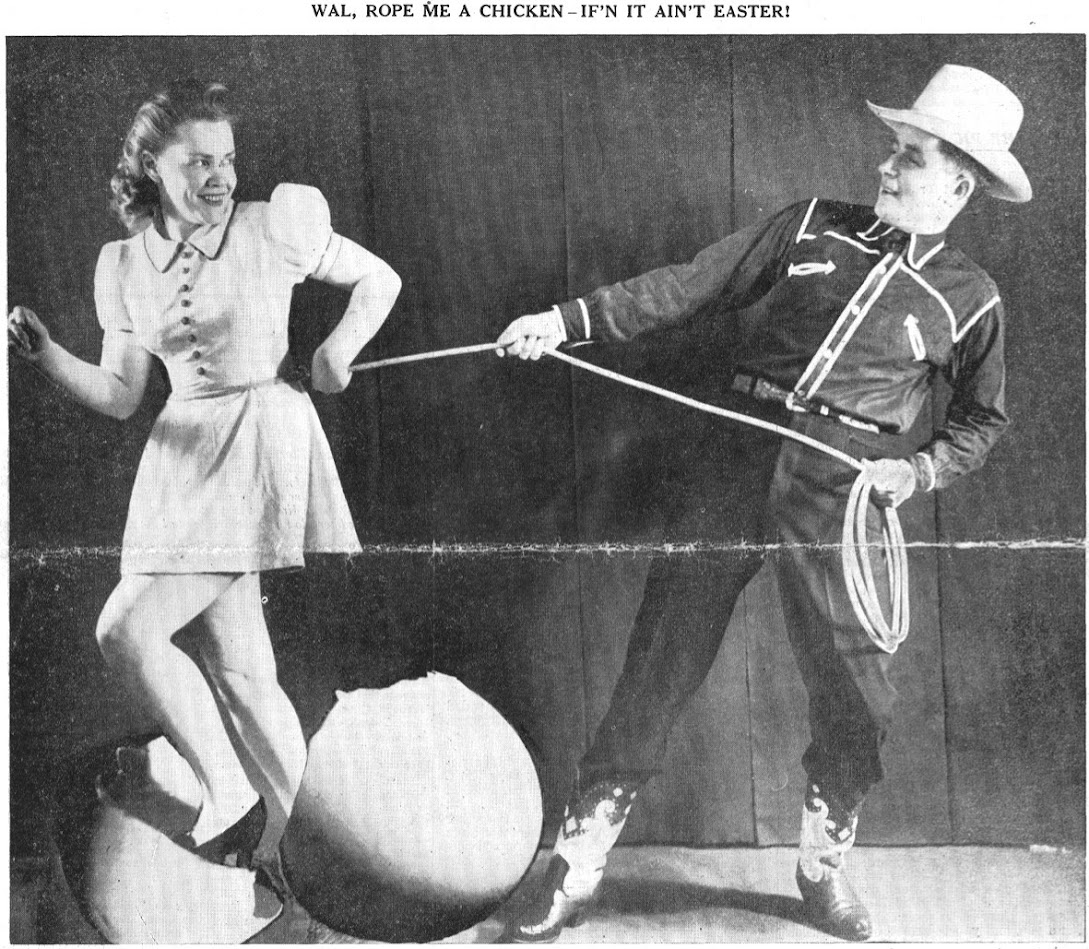


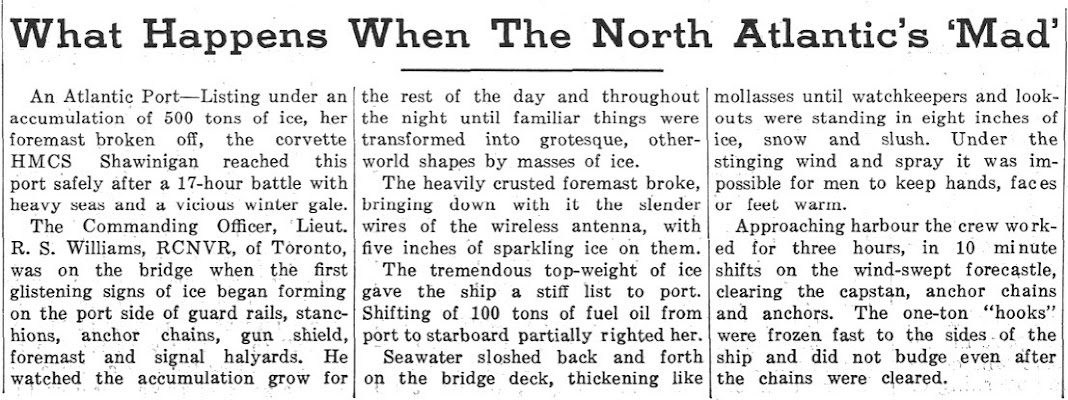





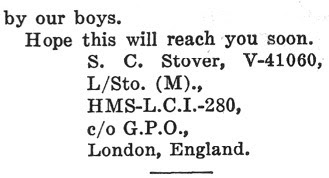



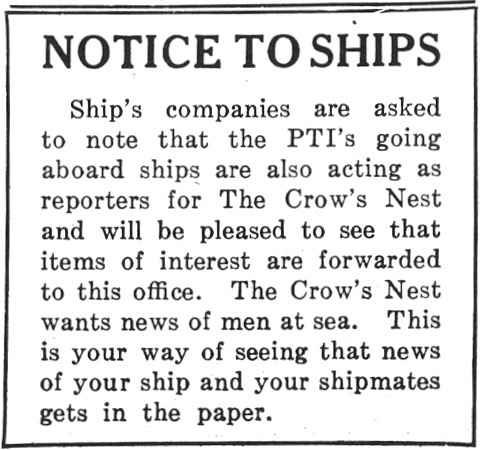




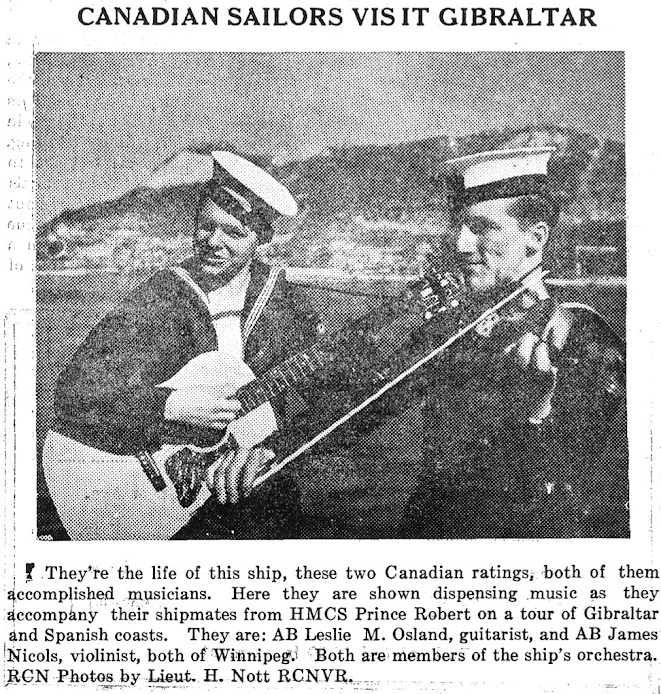
No comments:
Post a Comment